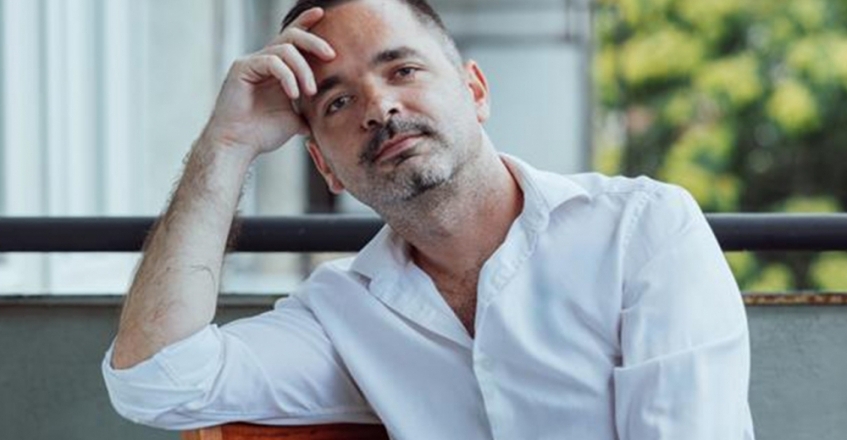Objave
Bojan Stojčić: Tenderness is a Highly Subversive Phenomenon Today
Bojan Stojčić's first film "Hope Hotel Phantom" delighted the audience at the Sarajevo Film Festival, as well as the team of young authors whose directorial style captivates with creativity, emotional charge and personal stories.
Bojan Stojčić's first film "Hope Hotel Phantom" delighted the audience at the Sarajevo Film Festival, as well as the team of young authors whose directorial style captivates with creativity, emotional charge and personal stories. His “Steel Hotel Song” will be screened at the 31st Sarajevo Film Festival.
Film is just one area of your artistic interest. However, this is the second time you've dealt with hotels in a film. What is it about hotels that intrigues you?
After my first film, “Hope Hotel Phantom”, shot in Dayton, where peace was negotiated and the current reality of Bosnia and Herzegovina was defined, the motif of the hotel became very interesting to me as a synthesis of the public and the private, as well as the transient and the permanent. If the Hope Hotel in Dayton was the place where the Dayton reality was established, the Hotel Internacional in Zenica is a clear representation of its unfolding. As an artist, a large part of my work is traveling, so I have many opportunities to reflect on these motifs in different hotels and accommodations.
Patriotism as a topic, or sub-topic, is very evident in the film. In a dilapidated, run-down hotel, the remaining workers take care of what's left of it. In the football stadium across the street, the fans are roaring. Which act is more patriotic?
The Hotel Internacional, owned by the Zenica Steel Factory, a former industrial giant, remained non-functional after partial privatization, but is owned by its workers. At its peak, the Zenica Steel Factory employed 24,000 workers, almost twice as many people as can fit in the Bilino Polje stadium, which is located across the street from the Hotel. It seemed to me that the patriotic songs blaring from the stadium were the ideal counterbalance to the silence of the Hotel and the defunct industry. It is not just a matter of class, but also of generation: the workers who guard the Hotel are mostly people close to retirement, while the people at the stadium are mostly young men, the generation of their children. Patriotism can be anything, of course it is performative, fun and colourful at a football match, but quiet patriotism is the protection of a country's natural resources and workers from the onslaught of big capital from other countries.
Your observation skills are exceptional. Many people have passed by the hotel and never thought to stop by to check what was going on inside. What made you come in?
I worked with the Manifesto contemporary art gallery team from Sarajevo on the art installation whose central piece of which was my film “Hope Hotel Phantom”. For the purposes of the installation, I would recreate hotel interiors in gallery spaces, trying to draw visitors into the temporary space of the hotel. Gallery Manifesto contacted Hotel Internacional to borrow some pieces of furniture, and once we were there to choose the furniture, and saw what kind of interior it was, it was clear. I think we immediately had an idea and a plan to shoot the film.
We are not used to this much sadness in your works. The performance of the song (by the way, who is the gentleman amazingly performing it?) in an empty hotel is heartbreaking. Where has your particular wit gone?
I often use humour in my works because I think it can be a very useful emancipatory tool. It gives me the possibility to turn the predetermined positions of otherness in my favour; however, humour is not the purpose of my work but a tool. In “Steel Hotel Song” my focus was on two songs. The first song, which comes from outside, from the stadium, is actually a choral singing of a patriotic theme. The song that happened inside the hotel, and which of course was not planned, is gentle, loving. It is sung by a former employee of Steel Factory who came to the Hotel to watch the match from the roof, but the presence of the film crew inspired him to sing something for us. I would say that the artistic tool used in my film, as well as in the gentleman's poem, is tenderness; a highly subversive phenomenon today. Tenderness seems sad because it is so rare, but I think in this case it is also comforting. Within the complete industrial collapse, longing for beauty and tenderness did not completely disappear, no matter how quiet it was against the patriotic celebration of the masses.






